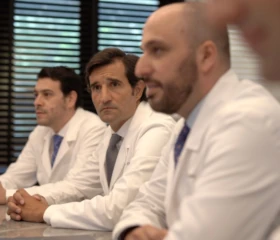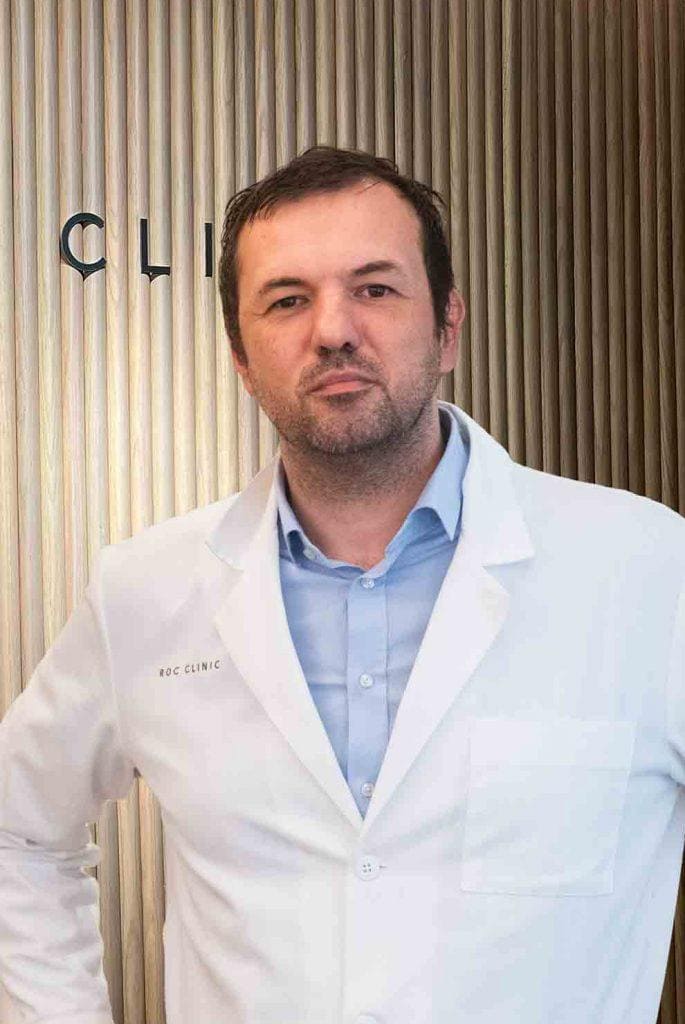Diagnosis Erectile Dysfunction
Establishing a good diagnosis of erectile dysfunction is the first step in helping a man with erectile problems. helping a man with erection problems.
Since the efficacy of treatment varies greatly depending on the cause of the problem, it is very important to determine precisely its origin.
- Super-specialized urologists
- Personalized treatment
- Minimally invasive approach
- More than 16,000 patients successfully treated
Erectile Dysfunction Diagnosis
Establishing a good diagnosis is the first step in helping a man with erection problems. Since the effectiveness of treatment varies greatly depending on the cause of the problem, it is very important to accurately determine its origin.
- Clinical interview: the diagnosis of erectile dysfunction is made by clinical history and the use of questionnaires (EHS, IIEF, IIEF-5) with a double objective: to determine the cause of the problem and to evaluate its severity. Possible personal antecedents involved will be assessed and the course of the disease and the ejaculatory function and sexual desire will be investigated and the possible cause will be established. A detailed medical, psychological and sexual history is necessary to try to obtain as much information as possible about how the problem started, in what situations it occurs, how it evolves and the possible factors that improve or worsen it. The clinical interview is especially relevant when ruling out erection problems due to pharmacological, psychological and neurological causes. It is also possible to determine the intensity of the problem and the repercussions it may have: decreased sexual desire, premature ejaculation, decreased satisfaction, relationship problems, etc. .....
- Physical examination: helps to understand some fundamental aspects and to rule out very common causes of impotence such as, for example, hypertension. Also, examination of the genitals, the distribution of pubic hair, the size and consistency of the testicles and the presence of plaques on the penis can reveal information about hormonal and penile problems (Peyronie's disease).
- Blood test: in almost all patients it is necessary to perform a laboratory blood test with determination of hormonal profile (testosterone, SHBG, LH, prolactin). In addition to identifying possible hormonal causes, it will also verify or rule out the existence of vascular causes such as hypercholesterolemia, chronic renal failure or diabetes or neurological causes such as diabetes, liver problems.
- Nocturnal penile tumescence test: if there is suspicion of psychological erectile dysfunction, a nocturnal penile tumescence test will be performed, which measures the automatic nocturnal erections that all men have when they enter the REM sleep phase. For this test, a device called RigiScan is used to measure the degree and frequency of these erections to assess whether the vascular mechanism that allows the erection is preserved. Its operation is simple and consists of two strips that are placed at the base and tip of the penis, attached to a device that makes the recording. The information it provides allows differentiating, with great precision, an Erectile Dysfunction of vascular origin from one of psychogenic origin.
- Doppler ultrasound with prostaglandins: if a venous leak is to be ruled out, a doppler ultrasound of the basal penis is performed. For this purpose, vasoactive substances that will produce erection are injected beforehand. After prostaglandin injection, a significant increase in blood inflow to the penis is observed, which explores the indemnity of the corpus-veno-occlusive mechanism. Some healthy men do not respond to the administration of this drug, so the results should always be critically analyzed. This diagnostic test makes it possible to explore the arterial and venous nature of the erection problem, as well as the vascular tree in diseases such as Peyronie's disease when complex surgeries are considered.
Other explorations such as cavernosography, cavernosometry, pelvic arteriography or assessment by mental health experts are not usually necessary in most men with erection problems, although they may be necessary in selected cases.
They ask us in the Consultation
How can I improve my erection problems with natural solutions?
30 minutes of daily physical exercise, a healthy and balanced diet and reducing stress can help improve the quality of erections.
My erection problems affect my sexual desire and separate me from my partner. What can I do?
Try to regain your self-confidence by confronting the problem. Walking away will only increase apprehension and prevent any form of intimacy with your partner. Be patient, regaining self-esteem is a gradual process. Savor the intimate moments as a couple and enjoy the preliminary moments.
When to resort to a penile prosthesis to treat penile dysfunction?
When all other treatments have failed and the patient has no contraindications.
How common is it to have erection problems?
Yes, they are very frequent, especially after the age of 40.
Team of the Erectile Dysfunction unit
Newsof ROC Clinic in Erectile Dysfunction
Research
Advances in activation pumps for three-piece penile prostheses: a narrative review
Technology
Hydraulic penile prostheses allow erection control with a very high degree of satisfaction.


 +34 912 627 104
+34 912 627 104 Contact
Contact








